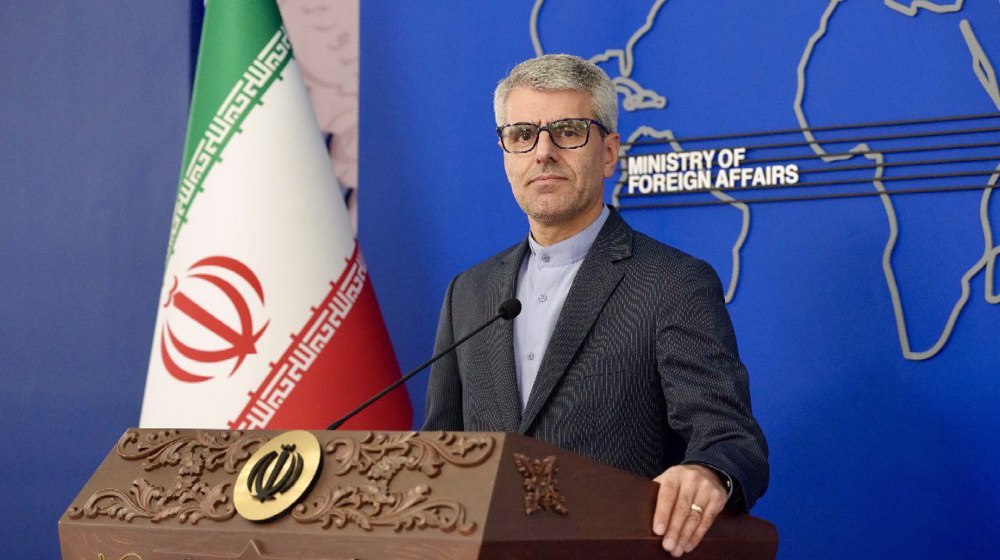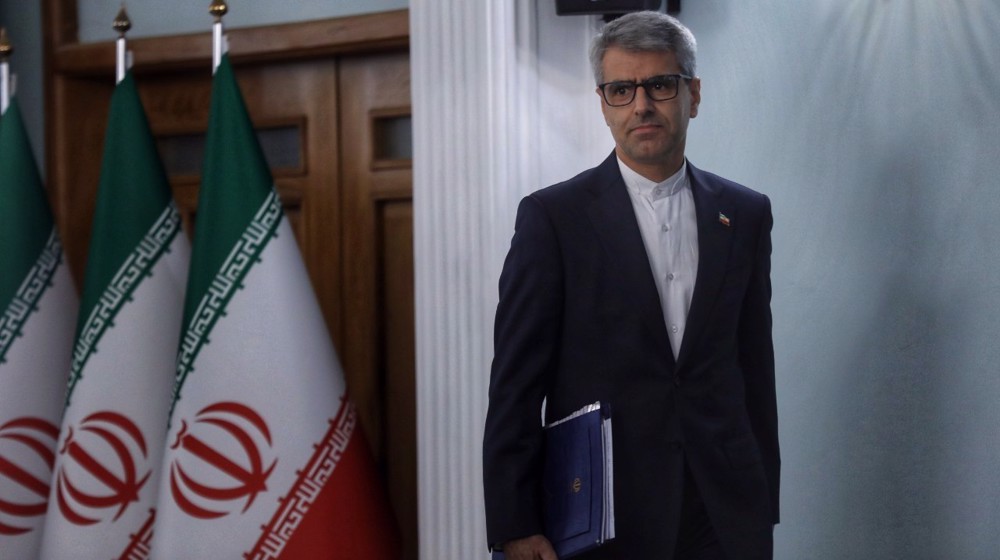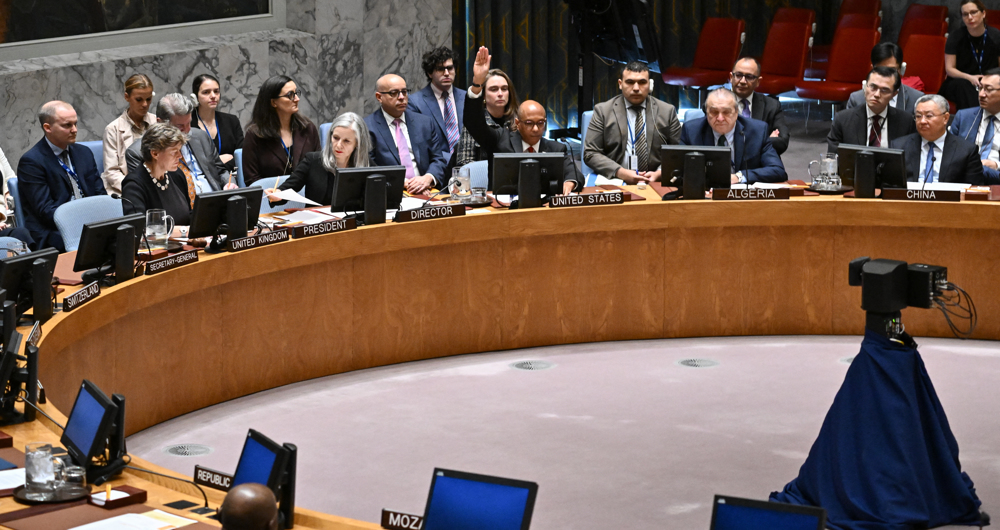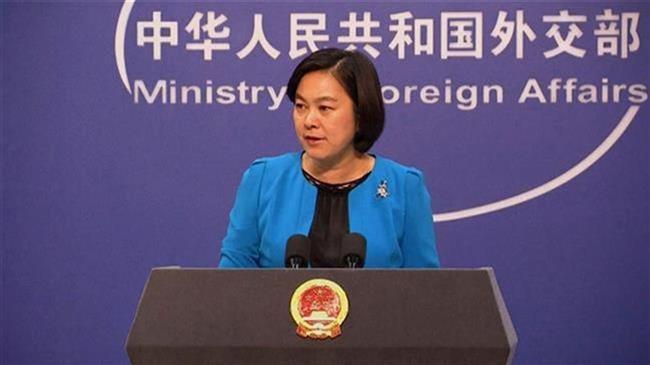Iran rejects renegotiation of JCPOA as ‘absolutely not acceptable’
Iran’s ambassador to the United Nations has rejected as “absolutely not acceptable” any proposal for the renegotiation of the 2015 nuclear deal, officially known as the Comprehensive Plan of Action (JCPOA).
Majid Takht-Ravanchi made the remarks during a meeting of the United Nations Security Council on Tuesday, saying, “The JCPOA is an agreement coming out of hard-won negotiations involving difficult gives and takes, and any proposal for its revision, renegotiation or extension will be against resolution 2231 and absolutely not acceptable to Iran.”
The Iranian envoy said Tehran would not negotiate its legitimate ballistic missile program, and bullying policies of some world powers would not intimidate the country into relinquishing its defensive means.
Takht-Ravanchi also warned that any attempt to link the future of the landmark deal to extraneous issues is “doomed to fail.”
Elsewhere in his address to the UN Security Council, the senior diplomat said Iran has already gone out of its way to save the 2015 nuclear deal and should not be asked to pay a heavier price.
Takht Ravanchi said the US has imposed more than 15,000 sanctions against Iran over the past four years while European countries have utterly failed to uphold their commitments under the deal, particularly at a time that the Islamic Republic is battling the deadly coronavirus pandemic.
“Sanctions are only one part of the destructive bullying policies and practices of the US against my country, which include its systematic Iranophobia campaign, warmongering, military adventurism in the Persian Gulf, interference in our domestic affairs and many other unlawful and provocative actions,” he said.
“Sanctions prevent the import of humanitarian goods, including vital medicines and medical equipment needed for patients particularly those with rare or complicated diseases,” Takht-Ravanchi added. “At a time when Iran is experiencing one of the worst outbreaks of COVID-19, sanctions are drastically hindering our national response to the pandemic.”
Stressing that Tehran has been denied the dividends of the deal and suffered severe damage and suffering, the Iranian envoy said Iran’s scale back of its obligations were in full accordance with its rights and commitments under the deal and are also completely reversible.
Kazem Gharibabadi, Iran's permanent representative to Vienna-based international organizations, also reiterated on Friday Iran’s position on the 2015 landmark accord that the agreement was not subject to renegotiation even as a new administration came to power in Washington.
US President Donald Trump, a hawkish critic of the groundbreaking 2015 nuclear deal between Iran and the five permanent members of the UN Security Council – the US, France, Britain, China and Russia – plus Germany, unilaterally withdrew Washington from the agreement in May 2018.
Washington reinstated the sanctions that the JCPOA had lifted, and also pressured others into committing to the bans and stopping their trade with Tehran.
The US unleashed the so-called maximum pressure campaign and targeted the Iranian nation with draconian restrictive measures in order to bring it to its knees, but Iran's economy keeps humming and is getting back on its feet.
Iran remained fully compliant with the JCPOA for an entire year, waiting for the co-signatories to fulfill their end of the bargain by offsetting the impacts of American bans on the Iranian economy. But as the European parties failed to do so, the Islamic Republic moved in May 2019 to suspend its JCPOA commitments under Articles 26 and 36 of the deal covering Tehran’s legal rights.
Iran took five steps in scaling back its obligations, among them abandoning operational limitations on its nuclear industry, including with regard to the capacity and level of uranium enrichment.
All those measures were adopted after informing the Atomic Energy Organization of Iran (AEOI) beforehand, with the agency's inspectors present on the ground in Iran.
Tehran has on numerous occasions said that its countermeasures are reversible once Washington returns to the JCPOA, fulfills its commitments and ends its sanctions.
Hezbollah attacks Israeli forces after Lebanese homes blown up
World leaders, states hail ICC arrest warrants for Netanyahu, Gallant
MP: US accountable for possible Israeli 'foolishness' to attack Iraq
VIDEO | Israeli policies strangle Palestinian agriculture, economy
Iran's president offers condolences to Pakistan over terrorist attack
Canada’s Yukon town council at standstill over refusing oath to King Charles
Yemen's Houthi calls for jihad to protect Palestine against Israel
VIDEO | Internal rifts within Israel




















 This makes it easy to access the Press TV website
This makes it easy to access the Press TV website